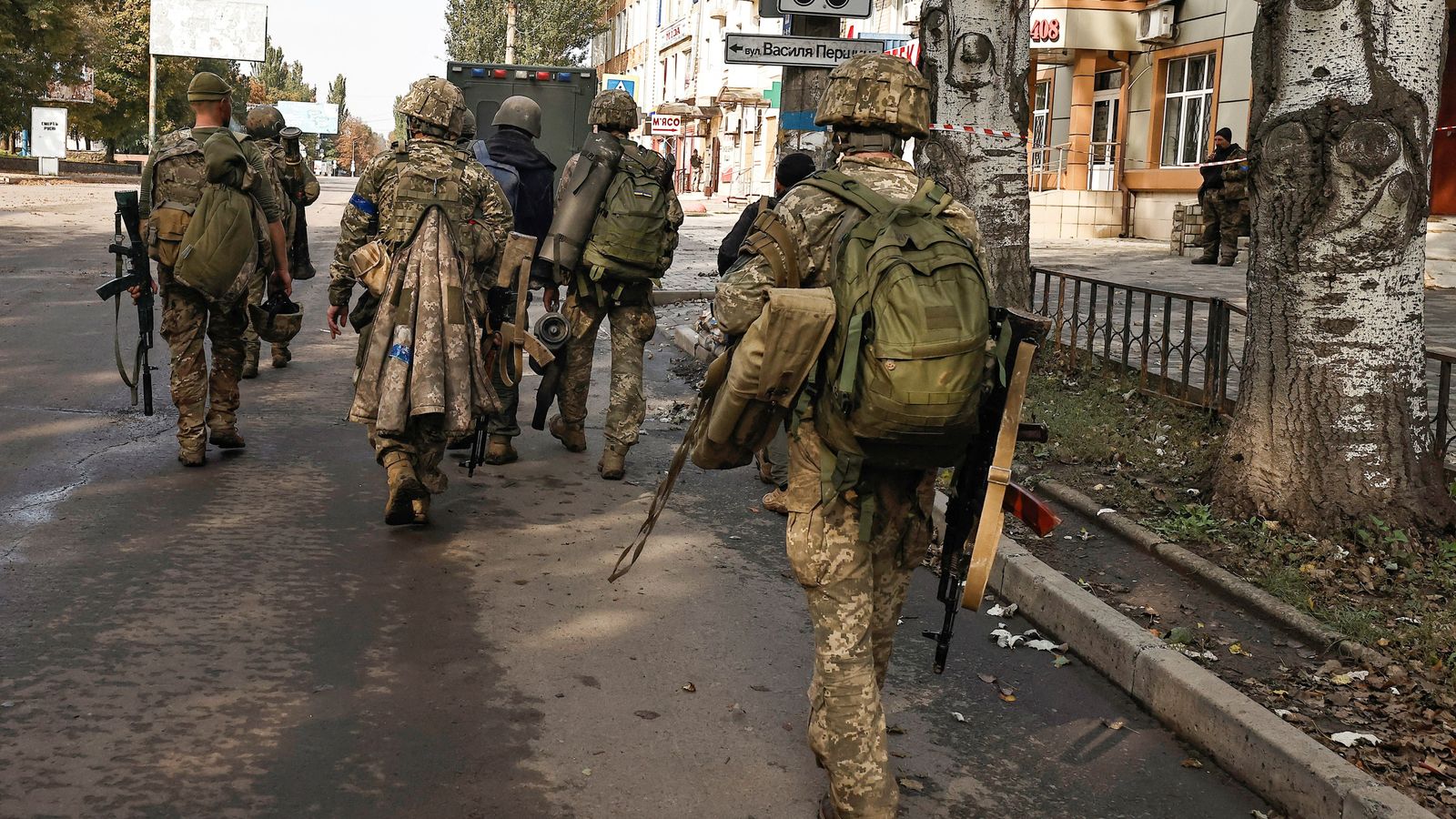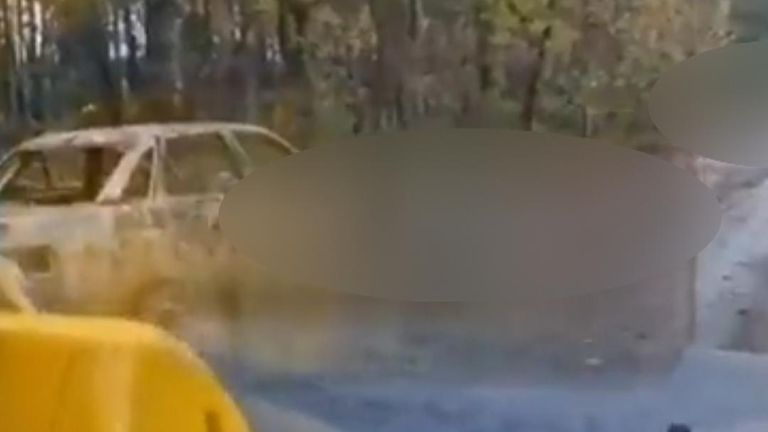Russian troops have pulled out of the city of Lyman in eastern Ukraine due to the risk they were being encircled by Ukrainian forces, the Kremlin has said.
Lyman is in Donetsk – one of the Ukrainian regions that was annexed by Russian President Vladimir Putin in a ceremony in Moscow on Friday.
And Mr Putin has previously threatened retaliation if Russia is attacked.
Earlier, a spokesperson for Ukraine’s eastern forces said Ukrainian forces had entered Lyman after encircling thousands of Russian soldiers and trapping them there. According to Ukraine’s President Volodymyr Zelenskyy, fighting is still going on in the city.
Russia’s retreat has prompted Ramzan Kadyrov, head of Russia’s Chechnya region and an ally of Mr Putin, to say that Moscow should consider using a low-yield nuclear weapon in Ukraine as a result of the defeats on the battlefield.
It comes amid ongoing attempts by Ukrainian forces to advance and also hold back Russian troops in other parts of Donetsk, including in Bakhmut.
The Institute for the Study of War (ISW), a US non-governmental organisation that has been monitoring the situation in Ukraine, highlighted the imminent fall of Lyman on Thursday, saying Russian social media commentators had been posting of their fears that Ukrainian troops were advancing to the west, north, and northeast of the town.
It appears as though the near encirclement of the town was completed by early Saturday.
The ISW said on Thursday: “The collapse of the Lyman pocket will likely be highly consequential to the Russian grouping in northern Donetsk and western Luhansk oblasts and may allow Ukrainian troops to threaten Russian positions along the western Luhansk Oblast border and in the Severodonetsk-Lysychansk area.”
Video footage posted by the adviser to the Ukrainian interior ministry Anton Gerashchenko showed what he said was a Russian convoy destroyed as it tried to leave Lyman.
Sky News has not verified the footage.
Lyman has served for months as a logistics and transport hub for Russian operations.
Its loss comes as a major defeat for Moscow, a day after Mr Putin proclaimed the annexation of Donetsk, Luhansk, Kherson and Zaporizhzhia.
In a Telegram post criticising Russian commanders for abandoning the east Ukrainian town of Lyman on Saturday, Mr Kadyrov wrote: “In my personal opinion, more drastic measures should be taken, right up to the declaration of martial law in the border areas and the use of low-yield nuclear weapons”.
Another video posted by Ukrainian President Volodymyr Zelenskyy’s chief of staff showed two grinning Ukrainian soldiers taping the yellow and blue national flag onto the “Lyman” welcome sign at the entrance to the town.
One of the soldiers says: “1 October. We are unfurling our state flag and establishing it on our land. Lyman will be Ukraine.”
A spokesperson for Ukraine’s eastern forces said Russia had 5,000 to 5,500 troops at Lyman but that the number of troops that had been encircled could be lower because Russia had suffered a number of casualties.
The fall of Lyman would be Ukraine’s biggest battlefield gain since a lightning counteroffensive in the northeastern Kharkiv region last month, which left Russia reeling.
Ukrainian military spokesperson Serhii Cherevatyi said on television the capture of Lyman would allow Kyiv to advance into the Luhansk region, which Moscow claimed it had captured in full at the beginning of July.
Mr Cherevatyi said: “Lyman is important because it is the next step towards the liberation of the Ukrainian Donbas. It is an opportunity to go further to Kreminna and Severodonetsk, and it is psychologically very important.”
The Ukrainian governor of Luhansk, which is largely occupied by Moscow’s forces, said on Telegram that any surrounded Russians had “three options… to try to escape, to die together, or to surrender”.
Serhiy Haidai said: “The possibilities of delivering ammunition to the Russians to the surrounded city or a peaceful exit from the settlement are already blocked.”
Donetsk and Luhansk regions together make up the wider Donbas region that has been the scene of some of the fiercest fighting since soon after Moscow invaded on 24 February.

